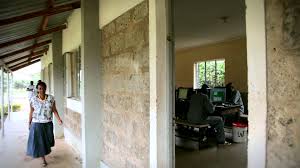Government Grants
Business Grants
Home Owner Programs
Federal Programs
About Us
Resources for the Management of Transgender Individuals in Custody and Under Supervision
In 2010, the National Institute of Corrections (NIC) began work in the area of the safe and secure management of lesbian, gay, bisexual, transgender, and intersex (LGBTI) individuals in custody based on Prison Rape Elimination Act (PREA) standards that require that agencies respond to this population.
Since
the awarding of an initial cooperative agreement, there have been additional awards on this topic for a variety of products, including policy guides, broadcasts, and trainings.
See the NIC webpage here.Correctional agencies face many challenges surrounding the safe management of the populations they house and supervise.
Due in part to changes in federal and state laws and the outcome of successful litigation, the management of transgender individuals in custody and on supervision is an emerging correctional issue that deserves special attention.
While gender non-conforming persons have always been present within facilities and on caseloads, the current environment suggests the need for agencies to identify responsible and safe practices that are respectful of differences and that have the potential to reduce agencies’ susceptibility to liability and litigation.The transgender population has some very particular issues associated with aspects of the correctional experience, such as housing, classification, and placement; medical and mental health treatment; clothing and grooming; drug testing; and interactions with staff.
As a general group, they are also more likely to be victims of sexually abusive acts while in custody according to surveys conducted by the Bureau of Justice Statistics (BJS), which indicate that non-heterosexual adults report higher rates of sexual victimization while in custody.In the U. S. Transgender Survey Report of 2015 (USTS), many challenges to the free-world transgender population are identified.
Homelessness, lack of access to health care, employment, and safe shelter are just a few.
(James, S.
E., Herman, J.
L., Rankin, S., Keisling, M., Mottet, L., & Anafi, M.
(2016).
The Report of the 2015 U. S. Transgender Survey.
Washington, D.C.:
National Center for Transgender Equality)Understanding the challenges that transgender people now face is especially relevant to preparing transgender persons for successful reentry and completing successful supervision in the community.
It should also be noted that the transgender population is somewhat overrepresented in the criminal legal system due in part to their involvement in activities that can lead to interaction with law enforcement.
These activities can include sex work, drug sales and/or use, and other underground economy work cited in the USTS.As the last award for LGBTI work was in 2016, NIC is seeking now to refresh and expand the resources that are currently available, focusing on the transgender population specifically.
NIC is soliciting proposals from organizations, groups, or individuals to enter into a cooperative agreement for at least a 12-month project period.
Work under this agreement will include a literature review, formation of a working group of subject matter experts, a white paper containing findings and recommendations, the updating and development of policy guides, education and training tools, and other resource materials.
Since
the awarding of an initial cooperative agreement, there have been additional awards on this topic for a variety of products, including policy guides, broadcasts, and trainings.
See the NIC webpage here.Correctional agencies face many challenges surrounding the safe management of the populations they house and supervise.
Due in part to changes in federal and state laws and the outcome of successful litigation, the management of transgender individuals in custody and on supervision is an emerging correctional issue that deserves special attention.
While gender non-conforming persons have always been present within facilities and on caseloads, the current environment suggests the need for agencies to identify responsible and safe practices that are respectful of differences and that have the potential to reduce agencies’ susceptibility to liability and litigation.The transgender population has some very particular issues associated with aspects of the correctional experience, such as housing, classification, and placement; medical and mental health treatment; clothing and grooming; drug testing; and interactions with staff.
As a general group, they are also more likely to be victims of sexually abusive acts while in custody according to surveys conducted by the Bureau of Justice Statistics (BJS), which indicate that non-heterosexual adults report higher rates of sexual victimization while in custody.In the U. S. Transgender Survey Report of 2015 (USTS), many challenges to the free-world transgender population are identified.
Homelessness, lack of access to health care, employment, and safe shelter are just a few.
(James, S.
E., Herman, J.
L., Rankin, S., Keisling, M., Mottet, L., & Anafi, M.
(2016).
The Report of the 2015 U. S. Transgender Survey.
Washington, D.C.:
National Center for Transgender Equality)Understanding the challenges that transgender people now face is especially relevant to preparing transgender persons for successful reentry and completing successful supervision in the community.
It should also be noted that the transgender population is somewhat overrepresented in the criminal legal system due in part to their involvement in activities that can lead to interaction with law enforcement.
These activities can include sex work, drug sales and/or use, and other underground economy work cited in the USTS.As the last award for LGBTI work was in 2016, NIC is seeking now to refresh and expand the resources that are currently available, focusing on the transgender population specifically.
NIC is soliciting proposals from organizations, groups, or individuals to enter into a cooperative agreement for at least a 12-month project period.
Work under this agreement will include a literature review, formation of a working group of subject matter experts, a white paper containing findings and recommendations, the updating and development of policy guides, education and training tools, and other resource materials.
Who's Eligible
Obtain Full Opportunity Text:
NIC website
Additional Information of Eligibility:
NIC invites applications from nonprofit organizations (including faith-based, community, and tribal organizations), for-profit organizations (including tribal for-profit organizations), and institutions of higher education (including tribal institutions of higher education).
Recipients, including for-profit organizations, must agree to waive any profit or fee for services.
Foreign governments, international organizations, and non-governmental international organizations/institutions are not eligible to apply.
Proof of 501(c) (3) status as determined by the Internal Revenue Service or an authorizing tribal resolution is required.
NIC welcomes applications that involve two or more entities; however, one eligible entity must be the applicant and the others must be proposed as subrecipients.
The applicant must be the entity with primary responsibility for administering the funding and managing the entire program.
Only one (1) application will be accepted from a submitting organization.
Full Opportunity Web Address:
https://nspires.nasaprs.com/external/solicitations/summary.do?solId={1B54B735-DE8A-470B-E31C-94C096681EF0}&path=&method=init
Contact:
Agency Email Description:
Form and application information
Agency Email:
Date Posted:
2023-12-08
Application Due Date:
Archive Date:
2024-03-07
Social Entrepreneurship
Spotlight
Social Enterprise Pushes Continuity of Care and Home Births

The Neighbourhood Midwives, the brainchild of Annie Francis of Hampshire, offers midwifery services geared for the continuity of care to women and their families.

